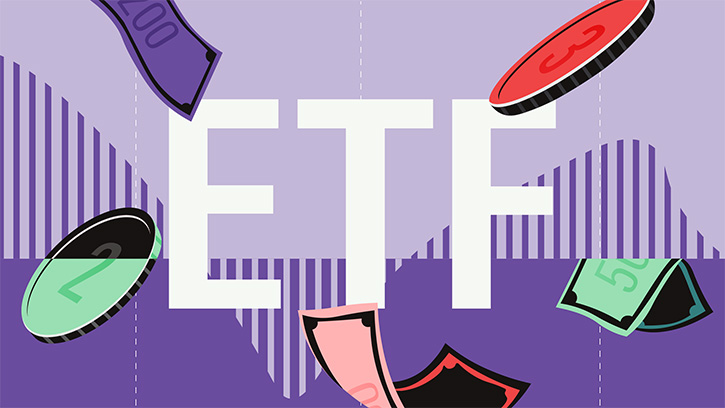
Developing country markets have traditionally been considered ideal for savvy stock-pickers, as they are typically less liquid and efficient than developed markets. And some are at a stage when it is still possible to unearth some “hidden gems” that are often not yet included in benchmarks tracked by passive funds.
But is this really the case?
Looking at the data, one would be forgiven for saying "not always, not everywhere". This is where Morningstar's European Active/Passive Barometer, a semi-annual report that measures the performance of European-domiciled active versus passive funds in their respective Morningstar categories, can help. The report includes nearly 26,000 funds that account for about half of the total European fund market, and the most recent edition has data to the end of June 2024.
Emerging markets stocks had a positive first half of 2024, even managing to outperform global developed markets stock indexes in the second quarter. The easing of concerns about China and the toning down of expectations of US rate cuts helped. The Morningstar study tells us that “passive funds incorporated the full upside and made it more challenging for active managers to outperform.”
This is the opposite of what we saw in 2023. Because China had become synonymous with underperformance, managers in the global emerging market equity category found an easy way to beat passive alternatives by taking a cautious approach to the Asian country.
The one-year success rate for active managers in this category stood at 40.2% in June, down from 46.3% in December 2023, while the 10-year success rate remained broadly unchanged at 28%. Success rates are defined as when active funds outperform their passive counterparts in a certain time period.
The table above shows the average success rate for the major emerging stock categories, which show very different results, making it harder to come to a firm conclusion.
For Indian equities, active managers achieved high success over the last 10 years (53.4%). Active equity managers in China did even better in the last 5 years (62.6%). That said, these are the only two cases where the success rate of active managers is above 50%.
The Flight of Active Investors From EM
The pessimism hovering over emerging equity markets, especially China, is reflected in the outflows experienced by exposed funds. Over the past year, investors have redeemed EUR 11.4 billion from actively managed global emerging market equity funds domiciled in Europe (data as of July 31, 2024).
During the same period, however, passive funds in the same category took in EUR 4 billion in net inflows, marking an organic growth of 2.55%.
The Heart of the Active/Passive Debate: Costs
“Conventional wisdom states that active managers should have higher success rates in less efficient markets, such as the emerging markets. But actually, the data shows a different story," says Monika Calay, director of passive strategies research at Morningstar.
Over both short and long periods, active managers' success rates in emerging markets have been lower than 50%, meaning that passive funds outperform.
The main reason is cost, continues Calay. “Actually, active managers are pricey in this category, five-six times more expensive than their passive counterparts.” As an example, passive emerging market equity funds tend to charge between 18 and 60 basis points (0.18% to 0.60%), while the average fee level for active funds is 1.8%.
The Inefficiencies of Passive Funds
Looking at regional indexes such as the FTSE Emerging Index or MSCI Emerging Markets, which are the most widely used benchmarks, the biggest concerns are about concentration in a small number of countries. To give an example, China, Taiwan, and India account for about 60% of the total portfolio weight in these indexes. Active managers also have large single-country allocations, but in theory, that's because they're hopefully conducting fundamental research that substantiate those weights.
“We’re also concerned about political risks. An illustration of this was March 2022, when Russia was essentially deleted out of these benchmarks, and as a result, asset managers had to write down those positions to zero,” Calay adds. “There are, therefore, real concerns in choosing passive funds, but there are some aspects of these strategies that remain attractive.”
In a Weak Market, Active Funds Make a Difference
When we look at the data, only about 24% of active managers in the emerging market equity category survive and outperform their passive peers at 15 years. Thus, identifying a skilled fund manager in this asset class is not as easy as it might seem. And the number of active funds that have closed or merged in the past 10 years is around 40% in these categories.
“It's a common misconception that the inefficiencies in emerging markets make it easier to pinpoint skilled active managers, and investors that are seeking to access this asset class still need to conduct their due diligence”, explains Morningstar’s analyst.
But recent performance has been more positive for active managers in this space.
“In 2023 we have seen success rates increase in the emerging markets category for active managers. And this is because they've been strategic about their country allocation. So, they've been cautious on China and bullish on Brazil and those bets have played well into their favor”, Calay says.
Such trends continued in 2024: ranking global emerging market equity funds domiciled in Europe by year-to-date returns (as of September 9), in 17th position you find a first passive fund. Moreover, among the 50 (out of 740 total) best performing funds since the beginning of the year, there are only four passive strategies, proving that during "bear" phases, the prudent approach of active managers can make all the difference.



























